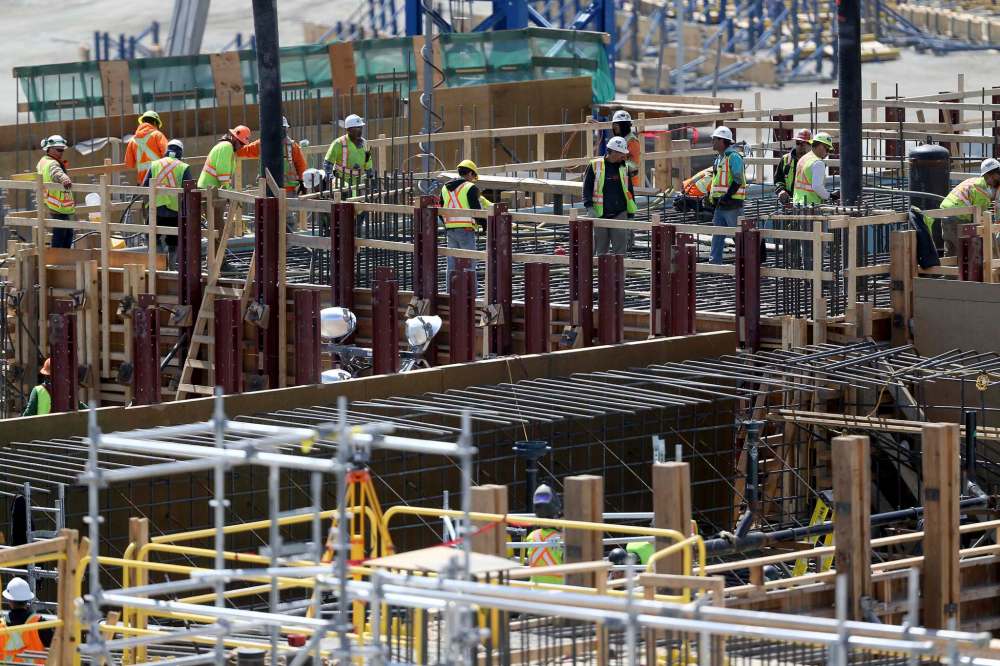Audit approves dam compensation
Hydro pays out more than $169 million for Keeyask project
Advertisement
Read this article for free:
or
Already have an account? Log in here »
To continue reading, please subscribe:
Monthly Digital Subscription
$1 per week for 24 weeks*
- Enjoy unlimited reading on winnipegfreepress.com
- Read the E-Edition, our digital replica newspaper
- Access News Break, our award-winning app
- Play interactive puzzles
*Billed as $4.00 plus GST every four weeks. After 24 weeks, price increases to the regular rate of $19.95 plus GST every four weeks. Offer available to new and qualified returning subscribers only. Cancel any time.
Monthly Digital Subscription
$4.99/week*
- Enjoy unlimited reading on winnipegfreepress.com
- Read the E-Edition, our digital replica newspaper
- Access News Break, our award-winning app
- Play interactive puzzles
*Billed as $19.95 plus GST every four weeks. Cancel any time.
To continue reading, please subscribe:
Add Free Press access to your Brandon Sun subscription for only an additional
$1 for the first 4 weeks*
*Your next subscription payment will increase by $1.00 and you will be charged $16.99 plus GST for four weeks. After four weeks, your payment will increase to $23.99 plus GST every four weeks.
Read unlimited articles for free today:
or
Already have an account? Log in here »
Hey there, time traveller!
This article was published 13/09/2016 (3414 days ago), so information in it may no longer be current.
Manitoba Hydro has properly reimbursed First Nations adversely affected by the Keeyask dam project, paying out more than $169 million, the auditor general of Manitoba says.
In a report released Tuesday, auditor general Norm Ricard said the payments included funds to cover the costs of First Nations to negotiate a partnership agreement with Hydro and to compensate them for the mega-project’s impact on the communities.
“Everything is pretty good here,” Ricard said. “We’re talking about improvements to good processes… we pride ourselves on reporting on not just the bad, but also the good.”

Of the $169 million Hydro earmarked as of March 31, 2015, $18.6 million is to compensate for the adverse effects, and it will pay an additional $110 million over the life of the project.
The four First Nations affected by the project are Tataskweyak Cree Nation, War Lake First Nation, York Factory First Nation and Fox Lake Cree Nation.
The audit’s three recommendations for the utility are: to require certification expenses are paid and get proof of payment for major expenses; to conduct periodic risk assessments for each First Nation, including examining a First Nation’s accounting records; and get independent assurance agreed-to procedures are followed in any future agreements.
Hydro spokesman Scott Powell said the utility is “generally pleased with the audit.”
“It says what we’ve said all along that the policies we have are solid… We’ve learned from the past.”
Powell said the utility has already updated its procedures for the first recommendation and is working on the others.
Minister of Crown Services Ron Schuler was travelling up north and unavailable for an interview Tuesday.
But in a statement, Schuler said while the government welcomes the report, it “is disappointed that the common-sense practices of compliance recommended by the AG were not previously pursued.
“We have full confidence our new board of Manitoba Hydro will take a common-sense approach to prudent fiscal management and governance going forward, while working in the best interests of the ratepayers and all Manitobans to ensure the corporation’s claim-verification process is strengthened.”
kevin.rollason@freepress.mb.ca

Kevin Rollason is a general assignment reporter at the Free Press. He graduated from Western University with a Masters of Journalism in 1985 and worked at the Winnipeg Sun until 1988, when he joined the Free Press. He has served as the Free Press’s city hall and law courts reporter and has won several awards, including a National Newspaper Award. Read more about Kevin.
Every piece of reporting Kevin produces is reviewed by an editing team before it is posted online or published in print — part of the Free Press‘s tradition, since 1872, of producing reliable independent journalism. Read more about Free Press’s history and mandate, and learn how our newsroom operates.
Our newsroom depends on a growing audience of readers to power our journalism. If you are not a paid reader, please consider becoming a subscriber.
Our newsroom depends on its audience of readers to power our journalism. Thank you for your support.
History
Updated on Tuesday, September 13, 2016 9:11 PM CDT: edits, updates





